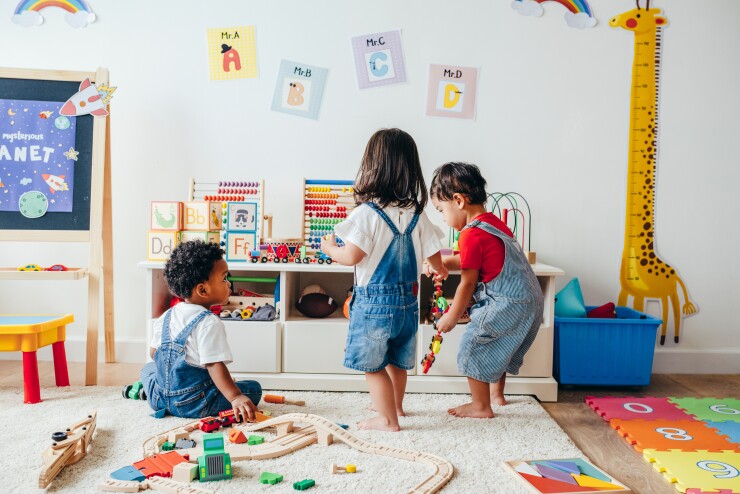Tennis pro Naomi Osaka has been an outspoken advocate for

Osaka serves as the chief community health advocate at Modern Health, a mental health platform designed to support an employee's entire family. Osaka welcomed a daughter this month, but her journey into
"Growing up I kept quiet about my feelings and in particular about times when I felt anxious or just not myself," says Osaka. "I'm honored to work with Modern Health to help children and parents and caregivers with mental health. These resources can even help my daughter as she grows up."
Read more:
For Dr. Adusei, a child clinical psychologist and clinical strategy manager at Modern Health, her own experience with clients has made it clear that parents need help opening a dialogue about mental health — and their children need wellness resources too.

"We need to make these conversations more approachable," says Dr. Adusei. "A big piece of the pie for a working parent is being consumed by the worries they have about their children and things going on at home, and there's simply less space to show up and focus at work."
According to the Pew Research Center, four in ten U.S. parents with children younger than 18 report feeling extremely or very worried that children might struggle with anxiety or depression. This outweighs concerns like drug and alcohol abuse, teen pregnancy and getting in trouble with the police.
Read more:
Children can feel the effects of a parent's anxiety, too: studies from the Journal of Consulting and Clinical Psychology and the American Journal of Psychiatry found that children of parents with anxiety disorder are four to six times more likely to develop the same disorder in their lifetime. Children of parents with depression are three to four times more likely to develop depression.
"Employees are connected to entire social systems, with a family and community," says Dr. Adusei. "The connection between a parent's mental health and a children's is very clear, and we want to make sure that we have different services that can cater to that."
Dr. Adusei encourages
Read more:
For example, Modern Health launched a virtual events series called "Family Huddle," where experts can help families navigate different mental health challenges. The first huddle was hosted by Osaka and Dr. Adusei and focused on how families can begin building positive mental health habits together. Osaka led the audience through meditations designed for children. Osaka, who wishes she had formed this habit earlier in life, is confident meditation can help kids begin to form a better relationship with their feelings.
"At first, I was intimidated by meditation, but then I started meditating regularly and it allowed me to start my day with purpose rather than from an anxiety-ridden point," says Osaka. "There are so many kids that struggle with mental health like me. They need help before they go into panic mode. Meditations can help kids slow down, focus on their breathing and think about their feelings and consider how they're reacting towards them."
Dr. Adusei reminds employers and parents that children are facing unprecedented events, as issues like climate change, mass shootings and political unrest take up their social media feeds 24/7. Parents and kids shouldn't have to cope with all of this alone.
Read more:
"We are seeing such an increase in a mental health crisis for youth," says Dr. Adusei. "But it's 100% natural to have a human response to these horrific things going on in our world. I ask parents to apply this logic to themselves too: we're living through stressors we never thought we needed to face."
Parents and their kids need resources and a community where they can explore how they are feeling. Both Osaka and Dr. Aduei agree that benefits like this are a win for employers and employees since better mental health equals a better, more productive workplace.
"I'm already feeling the stresses of parenthood," says Osaka. "I can only imagine the mental health toll that many working parents face on a daily basis. For working parents to be fully at ease, it's important that their children and dependents have access to mental health care."






